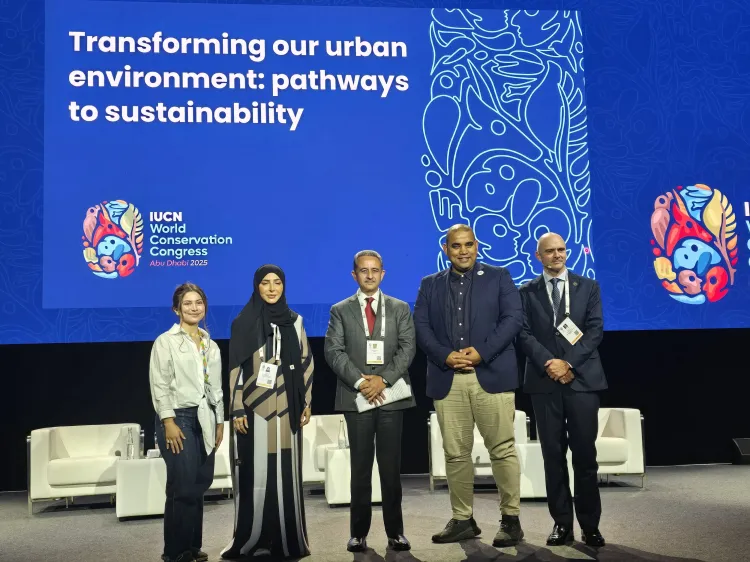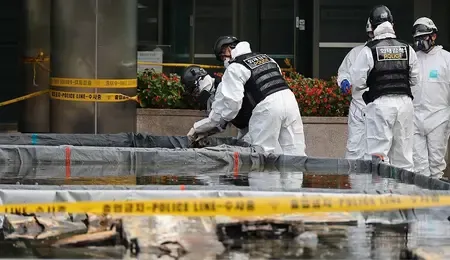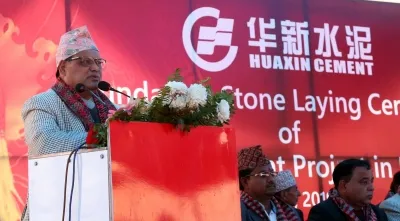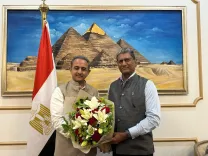What is India’s Vision for Sustainable Urban Development in Abu Dhabi?

Synopsis
Key Takeaways
- India's vision for urban development prioritizes sustainability and nature-positive initiatives.
- Smart Cities Mission integrates renewable energy and energy efficiency.
- Engagement of citizens is essential for successful urbanization.
- India's Energy Conservation Act strengthens energy-efficiency standards.
- The AMRUT programme enhances water-supply systems for municipalities.
Abu Dhabi, Oct 11 (NationPress) - The Union Minister of State for Environment, Forest and Climate Change, Kirti Vardhan Singh, participated in a global conference where he presented India’s vision for sustainable and nature-positive urban growth that prioritizes both people and the planet.
During the Ministerial Panel at the High-Level Dialogue on ‘Transforming our Urban Environment: Pathways to Sustainability’, held on the sidelines of the IUCN World Conservation Congress, 2025, in Abu Dhabi, Singh emphasized flagship initiatives like the Smart Cities Mission, which integrates energy efficiency, renewable energy, sustainable transport, and resilient infrastructure.
He remarked that with a clear vision, adequate financial resources, and public involvement, urbanization can transform into a significant catalyst for low-carbon, inclusive development. India is employing a comprehensive approach that combines policy support, targeted initiatives, and financial incentives.
Singh highlighted India's commitment to developing carbon markets and advancing renewable energy generation as steps toward realizing the 'Mission LiFE' initiative spearheaded by Prime Minister Narendra Modi. This initiative serves as a guiding principle for sustainability efforts worldwide.
The government’s strategy focuses on integrated planning, scalable missions, and fostering behavior change among citizens, he stated.
He also addressed India’s environmental initiatives, such as the Energy Conservation Act, revised in 2022, which enhances energy-efficiency standards for buildings, appliances, and industries, while establishing a domestic carbon-credit market that rewards cities and businesses for lowering their energy consumption.
Moreover, he pointed out that the AMRUT programme has empowered municipalities to upgrade their water supply and pumping systems to energy-efficient models, which reduces both costs and energy consumption.
In a post on X, MoS Kirti Vardhan Singh stated, “Participated in the Ministerial Panel at the High-Level Dialogue on ‘Transforming our Urban Environment: Pathways to Sustainability’ on the sidelines of the International Union for Conservation of Nature Conference, 2025, at Abu Dhabi.”
“I shared India’s vision for sustainable, nature-positive urban development that places people and the planet at the forefront. India’s initiatives to enhance carbon markets and boost renewable energy generation align with the clarion call of Mission LiFE by Hon’ble Prime Minister @narendramodiJi, which serves as a guiding principle for global sustainability initiatives,” he wrote.









